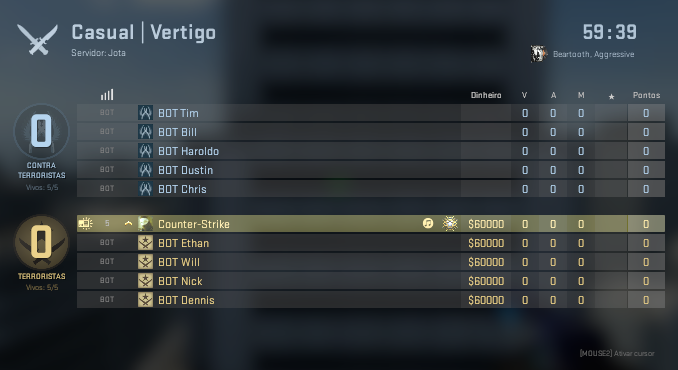Cupid's Hookup Guide
Unlock the secrets to modern dating with our insightful tips and advice.
Beyond The One Click: Inside CSGO's Report System Secrets
Uncover the hidden truths of CSGO's report system and how it shapes gameplay. Dive into secrets that every player needs to know!
Unveiling the Mysteries: How CSGO's Reporting System Works
The reporting system in CSGO is a crucial mechanism that ensures fair play and maintains the integrity of the game. Players can report others for various offenses, including cheating, abusive behavior, or grieving. Once a report is submitted, it enters a comprehensive review process that utilizes both automated algorithms and human moderators. This way, CSGO can swiftly address problematic players while reducing the chances of wrongful penalties.
Once a player is reported, a variety of factors determine the outcome of the report. These include the severity of the offense, the number of reports filed against the player, and their prior behavior history. Typically, a player can receive a CSGO penalty ranging from temporary restrictions to permanent bans, depending on the accumulated evidence against them. This layered approach not only helps in keeping matches fair but also deters players from engaging in disruptive behavior due to the fear of consequences.

Counter-Strike is a highly popular multiplayer first-person shooter game that pits teams of terrorists against counter-terrorists in various objective-based scenarios. Its strategic gameplay and emphasis on teamwork have made it a staple in competitive gaming. For players looking to optimize their experience, knowing how to show fps cs2 can provide valuable insights into their performance.
The Impact of Player Reports: What Happens Behind the Scenes in CSGO
The impact of player reports in CSGO extends far beyond the initial complaint. When a player submits a report, it triggers an intricate review process within the game's ecosystem. Reports are gathered and analyzed by a combination of automated systems and human moderators who evaluate the validity of claims. This ensures that incidents such as cheating, harassment, or disruptive behavior are taken seriously and addressed swiftly. The effectiveness of this system is crucial in maintaining a fair and competitive environment for all players.
Once a report has been reviewed and deemed actionable, players may face consequences ranging from temporary suspensions to permanent bans. The severity of the punishment often depends on the frequency and gravity of the offenses noted in the reports. Furthermore, the aggregate data collected from these reports contribute to continual improvements in game balance and player experience. Developers utilize this feedback to refine their anti-cheat mechanisms and introduce system updates, demonstrating the significant role that player reports play in shaping the ongoing evolution of CSGO.
Common Questions About CSGO Reporting: Myths and Facts
Counter-Strike: Global Offensive (CSGO) has a vibrant community, but with that comes the challenge of maintaining a fair gaming environment. Many players have questions about CSGO reporting, often fueled by myths and misconceptions. One common myth is that reporting players guarantees punishment. In reality, the reporting system is designed to collect data rather than deliver immediate justice. The Valve Anti-Cheat (VAC) system, which detects cheating, operates independently from player reports. Thus, while reporting is crucial, it does not ensure that every reported player will face consequences promptly.
Another prevalent question revolves around the effectiveness of CSGO reporting in addressing toxic behavior. Some players believe that reporting someone will influence their match experience negatively, while others think that reports go unnoticed. In truth, CSGO developers review reports systematically. If enough players report an individual for disruptive behavior—like harassment or griefing—this can lead to investigations and possible penalties. It's essential for players to use the reporting feature responsibly, recognizing that it is an integral part of fostering a positive gaming environment.